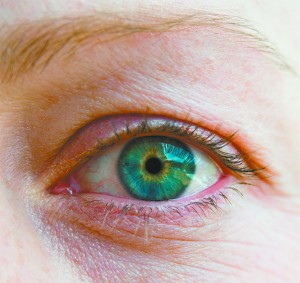By EyeSite of The Villages
 Menopause and perimenopause have many effects on women, none the least of which is dry eye. This condition increases a woman’s risk of visual impairment when left untreated. Interestingly, relatively few women recognize dry eye as a symptom of the hormonal changes that occur later in life.
Menopause and perimenopause have many effects on women, none the least of which is dry eye. This condition increases a woman’s risk of visual impairment when left untreated. Interestingly, relatively few women recognize dry eye as a symptom of the hormonal changes that occur later in life.
The Society for Women’s Health Research recently revealed that 62 percent of women experiencing menopause or perimenopause experienced symptoms of dry eyes. Despite these statistics, roughly 16 percent reported they linked their symptoms to menopause. That means more than half of women did not recognize dry eyes as a symptom of hormonal changes.
More than 3 million women experience dry eye each year. Some experience chronic dry eye. The good news is an eye care professional can help women successfully treat and relieve chronic dry eye associated with menopause.
Just because women undergo menopause doesn’t mean they have to suffer from dry eyes. Dry eye is a chronic ocular surface inflammatory disease. Menopause causes a hormonal imbalance, which disrupts the chemical signals necessary to help our eyes create its own tears. The key is linking your symptoms with your hormonal changes, then seeing your doctor to discuss treatment choices.
Symptoms of Dry Eye
What are the symptoms of dry eye in women? The symptoms are common and may include:
. Blurry vision
. Itching and irritation
. Burning sensation
. Dry or gritty sensation in the eye
. Sore and tired eyes
. Red eyes
Treating Menopausal Dry Eye
Dry eye typically results in uncomfortable symptoms. Treatment can include one of the
following or a combination of depending on the severity of the ocular surface inflammation:
. Artificial tears to supplement tears temporarily.
. Warm compresses to the eye to open oil producing glands on the eyelid margins.
. Eyelid scrubbing to decrease lid inflammation thus allowing healthy oils to be secreted from the lids to help create a healthy tear film.
. Drink more, stay hydrated.
. Omega 3 supplements; either flax seed oil or fish oil, between 1000 mg -3000 mg a day.
. Restasis; a cyclosporine eye drop to treat inflammation and help the body produce more of it’s own tears.
Some doctors may recommend hormonal therapy for women experiencing early menopause symptoms. There are also creams available that contain progesterone and estrogen for women experiencing perimenopause. If you suffer from chronic dry eyes and other menopausal symptoms, you may want to see your general healthcare practitioner as well as pay a visit to your eye doctor to decide the best treatments available.
You may discover a combination of treatments provides you the greatest comfort.
Rest and artificial tears may provide temporary relief. If your symptoms are severe however, you should visit your eye care professional. There are prescription tears available that are longer lasting and more effective than over-the-counter alternatives.
Also, keep in mind that many medications required by adults over age 40 may cause or worsen dry eye problems. Examples include diuretics (often prescribed for heart conditions) and antidepressants.
If you suspect a medication may be the underlying cause of your dry eye, be sure to discuss this with your doctor. It’s possible that changing to a different medical treatment may be equally effective without causing dry eye problems.
Remember that chronic dry eye can have a serious impact on your quality of life, and may increase your risks for permanent vision loss or recurring infections. It is important you visit your eye doctor once every year if you have vision problems so they can nip a problem like dry eye in the bud. Chronic dry eye, while not always curable, is very treatable. Studies suggest making simple life changes including visiting your eye care doctor may dramatically improve the quality of your life.
If you think you have the signs or symptoms of dry eye, be sure to visit your eye doctor as soon as possible. Together you can decide the best type of treatment.
EyeSite
352-647-EYES
www.eyesite-thevillages.com
Check Also
CUSTOMIZABLE LIGHT ADJUSTABLE LENS A GAMECHANGER FOR CATARACTS PATIENTS
All Americans have some degree of cataract change by the age of 75. As the …
 Central Florida Health and Wellness Magazine Health and Wellness Articles of the Villages
Central Florida Health and Wellness Magazine Health and Wellness Articles of the Villages



